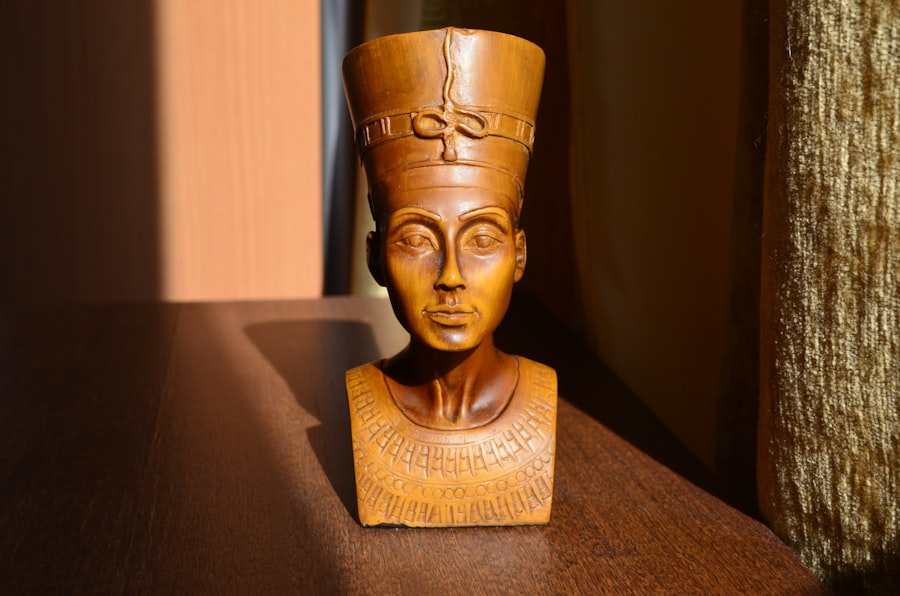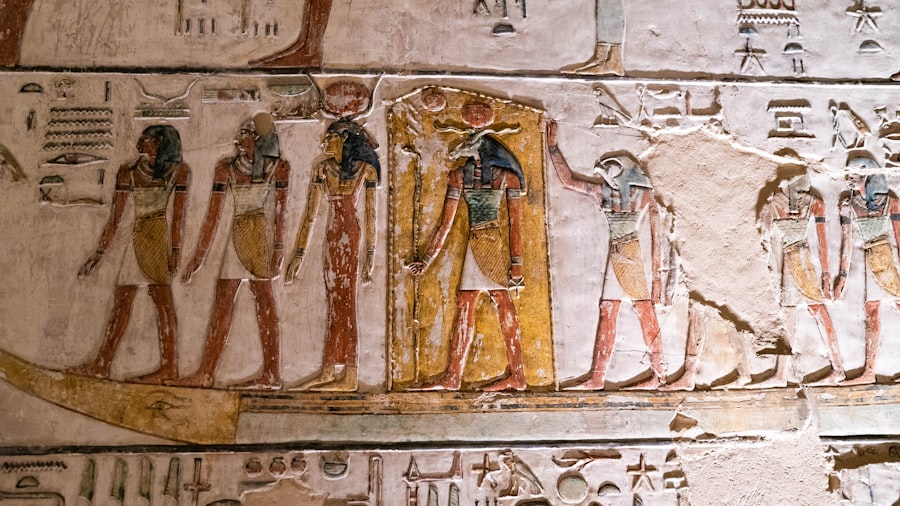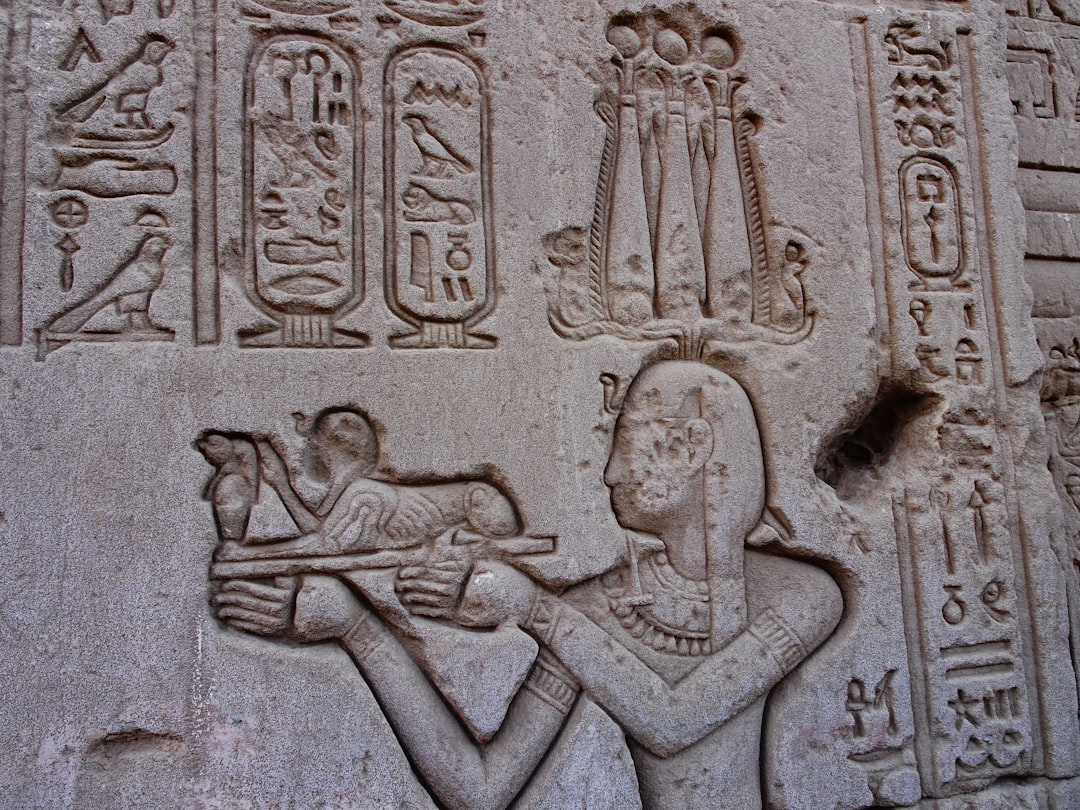Politics has always played a significant role in the field of Egyptology, shaping the way ancient Egyptian history is interpreted and understood. The relationship between political power and archaeological research is complex, often intertwining national pride with scholarly pursuits. In Egypt, the study of its ancient civilization is not merely an academic endeavor; it is deeply embedded in the national identity and cultural heritage of the country.
The Egyptian government has historically leveraged its rich archaeological past to foster a sense of national pride, using discoveries to promote tourism and bolster its international standing. This intertwining of politics and Egyptology can lead to a selective interpretation of findings, where certain narratives are emphasized or downplayed to align with the prevailing political climate. Moreover, the political landscape can influence funding and support for Egyptological research.
Government priorities often dictate which projects receive financial backing, leading to a focus on specific sites or periods that align with national interests. This can create a bias in the research agenda, as scholars may feel pressured to conform to governmental expectations or to produce results that reflect positively on the state. Consequently, the role of politics in Egyptology is not just about governance; it also encompasses the ethical implications of how history is presented and who gets to tell it.
Key Takeaways
- Politics significantly shapes the direction and interpretation of Egyptological research.
- Nationalism and political agendas often influence archaeological discoveries and their presentation.
- Maintaining academic integrity is challenging amid political pressures and funding dependencies.
- International collaboration is crucial to safeguard Egyptological research from political interference.
- Ethical considerations must be prioritized to ensure objective and responsible study of Egypt’s heritage.
Controversial Discoveries and Their Impact on Egyptology
Controversial discoveries in Egyptology have the potential to reshape historical narratives and provoke intense debate among scholars and the public alike. For instance, the unearthing of tombs or artifacts that challenge established timelines or cultural understandings can lead to significant shifts in how ancient Egyptian society is perceived. Such findings often ignite discussions about the accuracy of previous interpretations and the methodologies employed in archaeological research.
The impact of these discoveries extends beyond academia, as they can influence popular culture and public interest in ancient Egypt. The reaction to controversial findings can also be polarized, with some embracing new interpretations while others resist change. This division can stem from deeply held beliefs about national identity or cultural heritage, making it difficult for scholars to navigate the discourse surrounding these discoveries.
The implications of such controversies are profound, as they can either enrich the field of Egyptology by encouraging critical examination or stifle progress through entrenched viewpoints. Ultimately, the way controversial discoveries are handled can significantly affect the trajectory of research and public engagement with ancient Egyptian history.
Navigating Political Interference in Archaeological Excavations

Political interference in archaeological excavations poses a significant challenge for Egyptologists working in the field. Governments may impose restrictions on where and how excavations can be conducted, often prioritizing sites that align with national interests or political agendas. This can limit researchers’ ability to explore areas that may yield important findings but do not fit within the current political narrative.
As a result, scholars must navigate a complex landscape where their academic freedom is often curtailed by external pressures. Furthermore, political instability can complicate excavation efforts, as changes in government or policy can lead to abrupt shifts in support for archaeological projects. In some cases, researchers may find themselves caught in the crossfire of political disputes, facing challenges such as funding cuts or restrictions on international collaboration.
This environment can stifle innovation and hinder the advancement of knowledge within the field. To successfully navigate these challenges, Egyptologists must develop strategies for working within political frameworks while advocating for academic integrity and the pursuit of knowledge.
The Influence of Nationalism on Egyptological Research
| Metric | Description | Impact of Nationalism | Example/Notes |
|---|---|---|---|
| Number of Egyptian-led Excavations | Count of archaeological digs led by Egyptian researchers | Increased significantly post-1950s due to nationalist policies promoting local expertise | Rose from less than 10% pre-1950 to over 60% by 2000 |
| Publication Output in Egyptology | Number of research papers published by Egyptian scholars annually | Growth aligned with nationalist emphasis on cultural heritage preservation | Annual publications increased from 20 in 1960 to 150 in 2020 |
| Funding for Egyptological Research | Government budget allocation (in millions) for Egyptology | Boosted as part of national pride and cultural identity projects | Funding rose from 2 million in 1970 to 25 million in 2020 |
| Representation in International Conferences | Percentage of Egyptian delegates at global Egyptology events | Improved due to nationalist efforts to assert Egypt’s role in its own history | From 5% in 1950s to 40% in recent decades |
| Focus on Indigenous Narratives | Proportion of research emphasizing Egyptian perspectives over colonial interpretations | Marked increase as nationalism encouraged reclaiming historical narratives | Shift from 10% pre-1960 to 70% post-2000 |
Nationalism plays a pivotal role in shaping Egyptological research, influencing both the direction of studies and the interpretation of findings. In Egypt, there is a strong sense of pride associated with ancient civilization, which often translates into a desire to reclaim and celebrate cultural heritage. This nationalism can drive funding and support for research initiatives that highlight Egypt’s historical significance on the global stage.
The influence of nationalism can manifest in various ways, from government-sponsored archaeological projects that emphasize specific historical periods to public discourse that elevates certain interpretations over others. Scholars may find themselves under pressure to align their research with nationalistic sentiments, which can compromise academic objectivity.
As a result, navigating the intersection of nationalism and Egyptology requires careful consideration of how cultural pride shapes historical narratives and influences scholarly work.
Balancing Academic Integrity and Political Expectations
Balancing academic integrity with political expectations is a delicate task for Egyptologists engaged in research within politically charged environments. Scholars are often faced with the challenge of producing work that adheres to rigorous academic standards while also satisfying governmental demands for positive representation of national heritage. This tension can create ethical dilemmas, as researchers may feel compelled to alter their findings or interpretations to align with political narratives.
To maintain academic integrity, Egyptologists must cultivate a commitment to objectivity and transparency in their work. This involves critically examining their own biases and recognizing how external pressures may influence their research outcomes. Engaging in open dialogue with colleagues and stakeholders can also help foster an environment where diverse perspectives are valued, allowing for a more nuanced understanding of ancient Egyptian history.
Ultimately, finding a balance between academic rigor and political expectations is essential for advancing knowledge while respecting the complexities of cultural heritage.
Challenges in Preserving Cultural Heritage in the Face of Political Pressure

The preservation of cultural heritage in Egypt faces numerous challenges exacerbated by political pressure. As governments prioritize economic development and tourism, archaeological sites may be at risk from urban expansion or commercial exploitation. This tension between development and preservation often leads to difficult decisions about how best to protect invaluable historical resources while meeting contemporary needs.
Moreover, political instability can further complicate efforts to safeguard cultural heritage. In times of unrest, archaeological sites may become vulnerable to looting or neglect, resulting in irreversible damage to irreplaceable artifacts and structures. The challenge lies not only in protecting these sites but also in fostering public awareness about their significance.
Engaging local communities in preservation efforts can help build a sense of ownership and responsibility toward cultural heritage, ensuring that it remains a priority even amid political turmoil.
The Role of International Relations in Egyptological Research
International relations play a crucial role in shaping Egyptological research, influencing collaboration between scholars from different countries and institutions. Diplomatic ties can facilitate joint excavations, funding opportunities, and knowledge exchange, enriching the field through diverse perspectives and methodologies. However, these relationships can also be fraught with tension, particularly when issues of cultural ownership and repatriation arise.
The dynamics of international relations can impact which projects receive support and how findings are disseminated globally. For instance, countries with strong diplomatic ties may have greater access to funding for archaeological initiatives or collaborative research efforts. Conversely, strained relations can hinder progress and limit opportunities for knowledge sharing.
Addressing Ethical Concerns in Egyptology Amid Political Tensions
Ethical concerns in Egyptology are magnified amid political tensions, as researchers grapple with issues related to cultural ownership, representation, and the impact of their work on local communities. The question of who has the right to study and interpret ancient Egyptian history is central to ongoing debates within the field. As scholars navigate these complexities, they must consider how their research may affect perceptions of cultural heritage both locally and globally.
Addressing these ethical concerns requires a commitment to inclusivity and collaboration with local stakeholders. Engaging with Egyptian scholars and communities can help ensure that research reflects diverse perspectives and honors cultural significance. Additionally, fostering transparency in research practices can build trust between researchers and local populations, promoting a more equitable approach to studying ancient history.
Ultimately, addressing ethical concerns is essential for advancing Egyptology while respecting the rich tapestry of cultural heritage that defines ancient Egypt.
Strategies for Maintaining Objectivity in Egyptological Interpretations
Maintaining objectivity in Egyptological interpretations is vital for producing credible scholarship that withstands scrutiny from both academic peers and the public. To achieve this goal, researchers must adopt strategies that promote critical thinking and minimize bias in their work. One effective approach is engaging in interdisciplinary collaboration, drawing insights from fields such as anthropology, history, and art history to enrich interpretations and provide a more comprehensive understanding of ancient Egyptian society.
Additionally, employing rigorous methodologies that prioritize empirical evidence over preconceived notions can help ensure that interpretations are grounded in factual data rather than influenced by external pressures or personal beliefs. Regular peer review processes can also serve as a safeguard against bias, allowing scholars to receive constructive feedback from colleagues who may offer alternative viewpoints or challenge prevailing assumptions. By prioritizing objectivity in their work, Egyptologists can contribute to a more nuanced understanding of ancient history that transcends political narratives.
The Impact of Political Pressure on Funding for Egyptological Projects
Political pressure significantly impacts funding for Egyptological projects, shaping which initiatives receive financial support and how resources are allocated within the field. Governments often prioritize projects that align with national interests or promote tourism, leading to disparities in funding availability for various research endeavors. This dynamic can create challenges for scholars seeking to explore less popular or politically sensitive topics that may not attract government backing.
Moreover, reliance on government funding can lead researchers to self-censor their work or tailor their findings to meet political expectations. This pressure can stifle innovation and limit opportunities for groundbreaking discoveries that challenge established narratives. To mitigate these challenges, Egyptologists must seek diverse funding sources, including private foundations, international grants, and collaborative partnerships with institutions abroad.
By diversifying funding streams, researchers can maintain greater autonomy over their work while pursuing projects that contribute meaningfully to the field.
Collaborative Efforts to Protect Egyptological Research from Political Influence
Collaborative efforts are essential for protecting Egyptological research from political influence and ensuring that scholarly work remains grounded in academic integrity. Building networks among researchers from different countries and institutions can foster an environment where diverse perspectives are valued and respected. These collaborations can also facilitate knowledge sharing and resource pooling, enabling scholars to pursue innovative projects that might otherwise be constrained by political pressures.
Additionally, engaging local communities in research initiatives can help bridge gaps between academia and society while promoting a sense of ownership over cultural heritage. By involving local stakeholders in decision-making processes related to archaeological projects, researchers can ensure that their work reflects community values and priorities. Ultimately, collaborative efforts are vital for safeguarding Egyptological research from political interference while advancing knowledge about one of humanity’s most fascinating civilizations.
Political pressure on Egyptology has become a significant concern, as researchers navigate the complexities of cultural heritage and national identity. An insightful article that delves into this topic can be found at XFile Findings, where the implications of political influence on archaeological practices and interpretations are discussed in detail. This exploration highlights the challenges faced by scholars in maintaining academic integrity while addressing the demands of governmental and societal expectations.
WATCH THIS! The Sphinx’s Secret Chamber: Why Egypt’s Government Forbids Scanning the Hall of Records
FAQs
What is political pressure on Egyptology?
Political pressure on Egyptology refers to the influence or interference by governments, political groups, or other authorities on the study, interpretation, and presentation of ancient Egyptian history and archaeology. This can affect research priorities, funding, excavation permissions, and the dissemination of findings.
How can political pressure affect archaeological research in Egypt?
Political pressure can impact archaeological research by limiting access to sites, controlling which projects receive funding, influencing the narrative presented to the public, and sometimes restricting the publication of findings that may be politically sensitive or controversial.
Why might governments exert political pressure on Egyptology?
Governments may exert political pressure to promote national identity, control cultural heritage, boost tourism, or manage international relations. They might also seek to suppress interpretations that conflict with current political ideologies or agendas.
Has political pressure influenced the interpretation of ancient Egyptian history?
Yes, political pressure has at times influenced how ancient Egyptian history is interpreted and presented. Certain historical narratives may be emphasized or downplayed to align with contemporary political goals or cultural policies.
Are there examples of political pressure affecting Egyptology in recent times?
There have been instances where political considerations have affected archaeological work in Egypt, such as restrictions on foreign researchers, government control over excavation permits, and the promotion of specific historical narratives to support national pride or political legitimacy.
How do Egyptologists respond to political pressure?
Egyptologists often strive to maintain academic independence and objectivity, but they may face challenges balancing research goals with political realities. Some collaborate with local authorities to ensure access and support, while others advocate for greater transparency and freedom in archaeological research.
What role do international organizations play in mitigating political pressure on Egyptology?
International organizations like UNESCO work to protect cultural heritage and promote ethical archaeological practices. They can provide support, raise awareness, and facilitate cooperation to reduce political interference in Egyptology.
Can political pressure impact the preservation of Egyptian antiquities?
Yes, political pressure can influence decisions about the conservation, restoration, and display of antiquities. It may affect funding allocations, priorities for site protection, and policies regarding the export or repatriation of artifacts.
Is political pressure unique to Egyptology or common in other archaeological fields?
Political pressure is not unique to Egyptology; it is a common issue in many archaeological fields worldwide, especially where cultural heritage intersects with national identity, tourism, and political interests.
How can the public help reduce political pressure on Egyptology?
The public can support independent research, advocate for cultural heritage protection, promote awareness of the importance of unbiased archaeology, and encourage policies that prioritize scientific integrity over political agendas.
